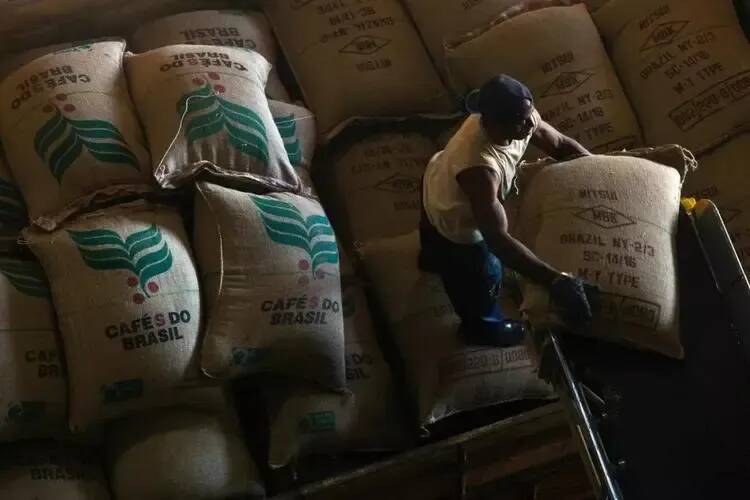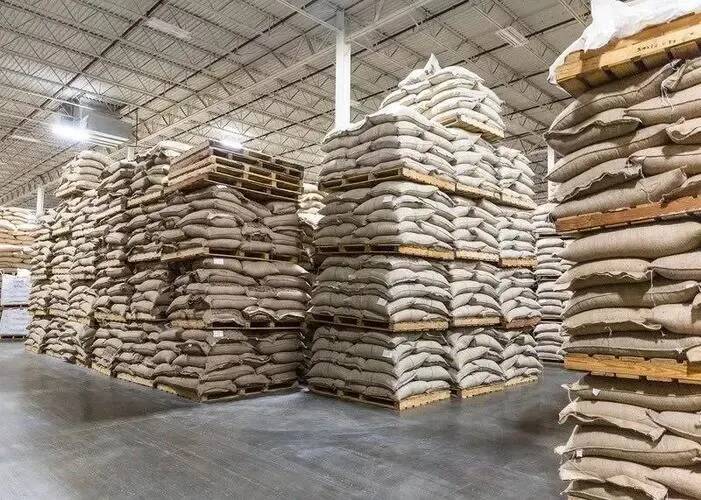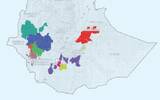Brazil's coffee exports set record! Future may be hindered by new tax regulations
Recently, the Brazilian Council of Coffee exporters (Cecaf é) released a report on Brazil's coffee industry in May, according to which Brazil exported 4.397 million bags (60 kg / bag) of coffee in May, a record for the month and a sharp increase of 79.6% compared with May last year. It also earned the highest foreign exchange earnings in history, at 1.017 billion US dollars, an increase of 85.9 per cent over May last year.

Brazilian coffee reached the highest export volume in the harvest year with 45.7 million bags in 2020Coffee in the 21st harvest year. 43.7 million bags of coffee have been exported in the first 11 months of the harvest year 2023 (starting July 2023), only 2 million bags below the all-time high, so the president of Cecaf é believes that this year is expected to break the cyclical export record and reach the earlier forecast target of 46.3 million bags.
Between January and May 2024, Brazil exported 2.069 million bags of coffee, also a record, an increase of 52.1 per cent compared with the same period last year. Revenue also increased by 50.8% over the same period last year to $4.473 billion.

During the period from January to May, Arabica coffee exports reached 15.654 million bags, accounting for 75.7% of the total exports, an increase of 36.3% over the same period last year. It is worth noting that Robusta, for its part, exported 860000 bags in May, an increase of 559.3% over the same period. In the 11 months of the current coffee year, exports increased to 7.412 million bags, an increase of 499% over the same period, and the total volume increased to 344200 bags from January to May this year, an increase of 553.8% over the same period.
The excellent performance is due to the increased demand in the coffee market, while the bad weather in Vietnam and Indonesia has led to a reduction in production and a shortage of supply in the coffee industry. In addition, the continuation of the Red Sea crisis has led to a reduction in Eurasian routes and increased shipping time and costs, resulting in a significant increase in market demand for Brazilian coffee and an increase in Brazilian coffee exports.
In addition, Brazil said that in recent years, the Robusta coffee industry in Brazil has developed rapidly, and the quality is much higher than before. Now, in addition to the traditional Robusta producing areas, research on the cultivation of robusta coffee has begun in Minas Gerais, Sao Paulo and Goas, so Robsta production will continue to grow in the future.
However, at present, the Brazilian coffee industry still faces many problems. La Nina is likely to occur in the second half of the year, while according to the World Meteorological Organization, there will be a drought in the Americas, which will affect southern Brazil, which is the main growing area of Brazilian crops such as coffee, corn and soybeans.
On the other hand, there are political issues in the country, where the Brazilian government recently announced new measures to tighten the use of tax credits, which will tighten the use of federal PIS-Cofins tax credits.
According to the Brazilian Council of Coffee exporters (Cecaf é), this will affect the cash flow of coffee exporters, affect costs, increase expenditure and increase the operating burden, eventually reducing the international competitiveness of Brazil, the world's largest coffee exporter. In the four months since Congress approved the new policy, some growers such as soybeans and coffee have stopped selling their agricultural products.
As coffee has been pre-sold in the new season, it will not have much impact on coffee exports in the near future, and a long-term slowdown in export sales may prompt international buyers to seek alternative sources, which may lead to higher prices.
Important Notice :
前街咖啡 FrontStreet Coffee has moved to new addredd:
FrontStreet Coffee Address: 315,Donghua East Road,GuangZhou
Tel:020 38364473
- Prev

Ethiopia| Introduction to Elto Coffee Beans in Bansa Area of Sidamo Region
African coffee has a very high reputation in the global coffee market, and for coffee lovers, Ethiopia is a holy place in their hearts. It is recognized as the birthplace of coffee and has the world's largest coffee gene bank. There are many varieties of coffee. According to estimates, there are nearly 15000 varieties in Ethiopia today
- Next

Intrigue public anger! "1 Yuan Beauty Coffee" was besieged by negative reviews from netizens!!
▲ Click to pay attention| Daily Boutique Coffee Culture Magazine Coffee Workshop Recently, a netizen posted that a coffee shop has launched a group purchase package called "One of Three Choice of Beauty Coffee for 1 Yuan", and stated that "Only for beautiful women under the age of 35, and only for consumption from 7 to 10 pm","The boss is very picky, if you feel that you are interested in it.
Related
- What grade does Jamaica Blue Mountain No. 1 coffee belong to and how to drink it better? What is the highest grade of Blue Mountain coffee for coffee aristocrats?
- What are the flavor characteristics of the world-famous coffee Blue Mountain No. 1 Golden Mantelin? What are the characteristics of deep-roasted bitter coffee?
- Can I make coffee a second time in an Italian hand-brewed mocha pot? Why can't coffee be brewed several times like tea leaves?
- Hand-brewed coffee flows with a knife and a tornado. How to brew it? What is the proportion of grinding water and water temperature divided into?
- What is the difference between Indonesian Sumatra Mantinin coffee and gold Mantinin? How to distinguish between real and fake golden Mantelin coffee?
- What does bypass mean in coffee? Why can hand-brewed coffee and water make it better?
- Unexpected! Ruixing Telunsu lattes use a smoothie machine to foam milk?!
- % Arabia's first store in Henan opens into the village?! Netizen: Thought it was P's
- Does an authentic standard mocha coffee recipe use chocolate sauce or powder? Mocha Latte/Dirty Coffee/Salty Mocha Coffee Recipe Share!
- What is the difference between Vietnam egg coffee and Norway egg coffee? Hand-brewed single product coffee filter paper filter cloth filter flat solution!

